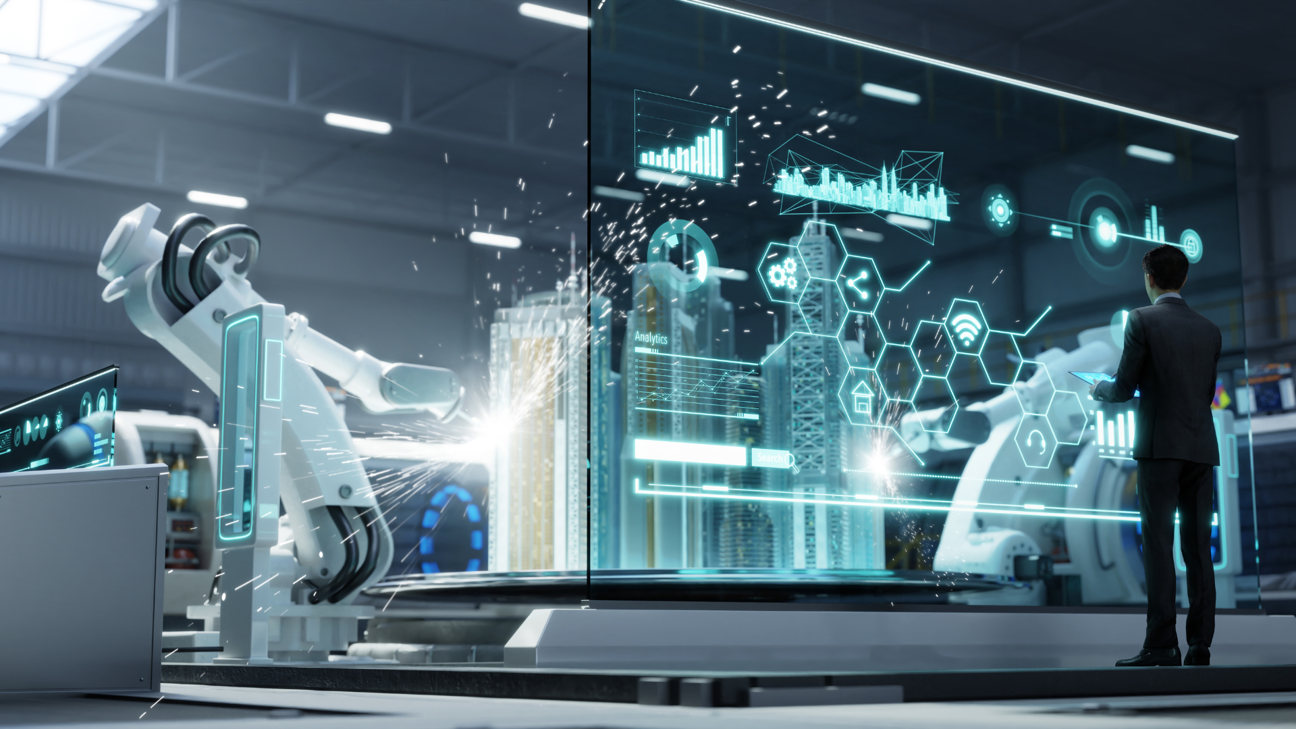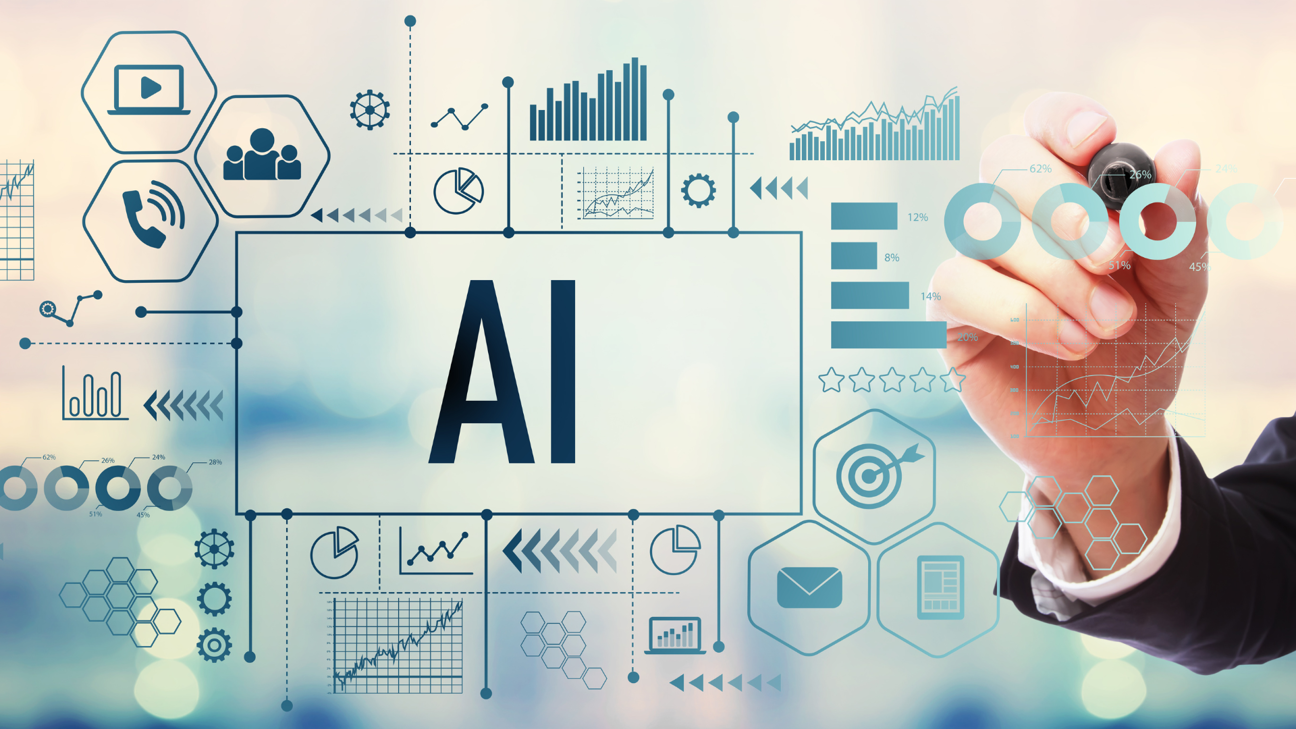Optimizing Pharmaceutical Manufacturing
The Role of AI and ML

In 2017 a team of Google researchers published the paper "Attention is all you need" [1], a rather technical paper on a specific technique for neural networks, called transformers. Few would have predicted the incredibly deep societal impact that these new methods would have only a few years later. Massive technological changes occur in sporadic leaps and bounds, rather than through a gradual improvement. We are now in the middle of one of these technological leaps, where the capabilities and possibilities of artificial intelligence (AI) and machine learning (ML) are being realized and debated in all walks of life. The 2017 paper opened the door for technology such as ChatGPT and Dall-E, two systems that allow the public to use extremely advanced and powerful machine learning algorithms to create text, answer questions and generate images. As always with new technology with massive impact, the implications and changes can be both positive and negative.
If we look to the near future, it is clear that we can expect to see several trends that will shape the pharmaceutical industry for years to come. One of the most significant trends is the increased use of technology and harnessing of the capabilities of AI and ML. Pharma manufacturers are increasingly spending more on digital innovation and taking on board digital transformation experts to steer this process. Companies are moving away from static spreadsheets that provide limited capabilities to optimise and secure succession planning within organisations. Artificial intelligence (AI) and machine learning (ML) are emerging as highly valuable instruments in the manufacturing planning process, primarily as decision support tools.
By leveraging the power of AI and ML, pharmaceutical manufacturers can optimise their planning and production processes. This improves efficiency and allows them to shift towards more flexible and modular manufacturing, ultimately leading to better outcomes for patients.

Technology plays an increasingly important role in pharmaceutical manufacturing planning. Data analytics, AI and ML are used to optimise production processes, gain valuable insights into the performance of production lines, and make data-driven decisions for improved efficiency. ML algorithms can predict demand for specific drugs and adjust production accordingly, while data analytics can be used to identify bottlenecks in the production process, predict equipment failures, and develop solutions to address these issues. AI and ML can also help predict and mitigate the effects of disruptions to the supply chain.
Traditionally, pharmaceutical manufacturing has been based on a one-size-fits-all approach, with large-scale facilities designed to produce a specific drug or group of drugs. However, a shift towards more flexible and modular manufacturing is expected. This approach allows for the production of a variety of drugs at smaller, more flexible facilities. Such a shift will increase the complexity of the manufacturing process, while at the same time helping to reduce costs and improve efficiency, as well as allowing for more rapid scaling-up of production in response to changes in demand. AI and ML will play a significant role in helping companies to deal with the increased planning complexity of such flexible facilities.

Sustainability is becoming an increasingly important issue in the pharmaceutical industry. Manufacturers are under pressure to work towards the United Nations Sustainability Development Goals, which include reducing waste, improving energy efficiency, and minimizing the environmental impact of production. Improved sustainability can be achieved through a variety of means, such as using more sustainable raw materials, investing in renewable energy sources, and implementing circular economy principles in production.
AI and ML can also be used to improve sustainability in pharmaceutical manufacturing. By analysing data on energy consumption, waste, and other environmental factors, AI and ML algorithms can identify opportunities for improvement and help manufacturers to reduce their environmental footprints. This can include identifying ways to reduce energy consumption, decrease manufacturing floor downtime and minimise product waste. AI and ML will also aid in the transition from single-use disposable solutions to open-transfer manufacturing techniques for safer storage and drug transport.
The rise of ChatGPT and similar technology is changing the way in which users use computers. Instead of predefined actions, i.e. "press this button to do this", the users can expect to engage the AI in conversation, describing the desired outcome and asking the computer to come up with solutions or report that satisfies those requests. The computer response can then be refined through additional conversation until the user is satisfied with the outcome. Such systems will revolutionize the flexibility and capabilities of regular users, whether they are planners working in the day to day schedule of the manufacturing process, or CEO's trying to gain a better insight into future opportunities or threats.

Overall, AI and ML revolutionises the pharmaceutical industry and is becoming indispensable for pharmaceutical manufacturers. With its abilities to predict demand for specific drugs and adjust production accordingly, AI and ML can help manufacturers to avoid overproduction, optimise resources and costs, escape missed deadlines and prevent shortages of essential medicines.
By analysing data on past sales, demographics, and other factors, AI and ML algorithms can make accurate predictions about future demand and help manufacturers to plan and streamline their supply chains accordingly.
The pharmaceutical industry is facing several challenges, including increased use of technology in manufacturing planning, a shift towards more flexible and modular manufacturing, and an increased focus on sustainability. The use of AI and ML algorithms offers several benefits, such as the ability to predict demand, optimize production processes, and improve sustainability. By embracing these trends and new technologies, the pharmaceutical industry can play a critical role in improving global health and well-being.
The key to AI and ML is accessible data. Companies where the data is locked in spreadsheets will be left behind, the companies that embrace digitalization of data will be in a position to use and benefit from artificial intelligence and machine learning.
To enhance your experience on our site and to analyze traffic, we use cookies. By clicking "Accept All," you agree to the storing of cookies on your device for analytics purposes. You can manage your settings or learn more in our Privacy Policy.
We use cookies to improve your browsing experience and analyze how our website is used. These cookies allow us to understand trends, monitor website traffic, and gather insights to make the site better for you.
We respect your privacy and are committed to transparent data usage.
Necessary Cookies: These ensure that the website functions properly.
Analytics Cookies: These help us track site traffic, user behavior, and performance metrics. The data collected is anonymous and allows us to continuously optimize the site.
Preferences Cookies: We may use cookies to remember your preferences and tailor your experience.
Marketing Cookies: We may use cookies for marketing purposes.
By clicking "Accept All," you consent to the use of all cookies. If you prefer, you can customize your choices and opt out of certain cookies. You can learn more about how we handle data and cookies in our Privacy Policy.